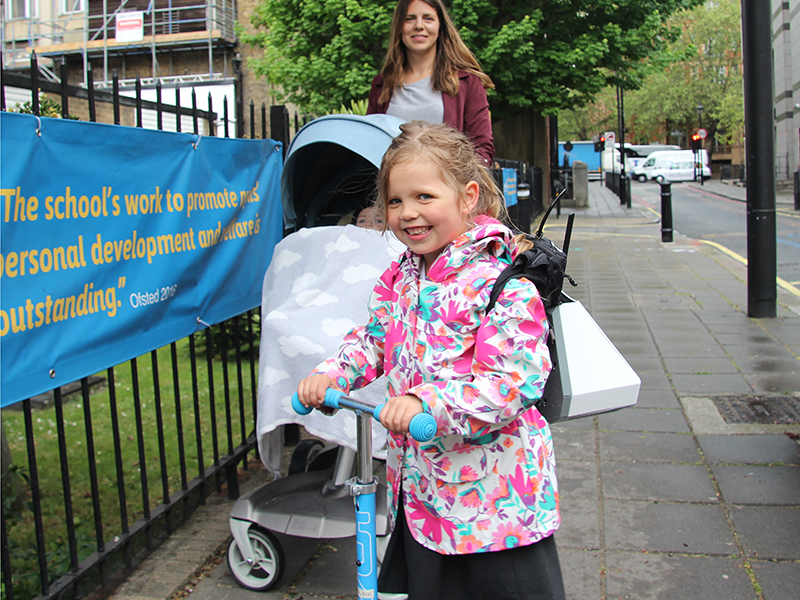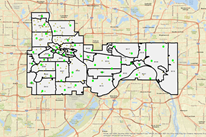With wireless communications using the global mobile network and a choice of power options, including batteries, mains supply or a bespoke solar pack, AQMesh air quality monitors can be installed in almost any location.
Government, local authorities, smart cities and schools
Monitoring air quality is essential for authorities to ensure pollution levels in the area do not exceed regulatory limits. The air quality data gathered can be used to identify pollution sources, as well as develop strategies and inform policies to manage levels of air pollution and mitigate its impact on the health of the population.
Urban air pollution is typically a variety of pollutants from a range of sources, which mix at different rates, as well as being influenced by local weather conditions. Key pollutants of interest in towns and cities tend to be NO2, O3 and PM2.5, which are all harmful to our respiratory systems. Small air quality sensors for these pollutants can often be limited by the impact of fluctuating temperatures, humidity levels and other gases, but AQMesh has been carefully developed to withstand and compensate for the effects of complex environmental conditions and able to monitor levels of NO2, O3, PM2.5 (and all the other measurements on offer) accurately and reliably, so meaningful data can be used to develop policies for protecting citizens.
Many people are concerned about children being exposed to harmful pollutants not only while they travel to and from school but also whilst they are spending large proportions of the day there. Commuter traffic during busy periods and idling vehicles near the school entrance are common sources of pollution that affect the local air quality around school premises. Studies show that NO2, O3 and PM2.5 are particularly dangerous for young people as they can significantly impair lung development, as well as being key asthma triggers and causes of lung disease and cancer.
Monitoring air quality throughout towns, cities and especially around schools can help with initiatives for reducing vehicle traffic and encouraging more people to walk or use bicycles, as part of wider pollution mitigation strategies in the local area, such as increased pedestrianisation, use of public transport, improving road networks, implementing low emission zones and introducing "no idling" laws.



Related benefits
Related articles & case studies
Need more information? For the best air quality monitoring system and outstanding customer support Get in touch












